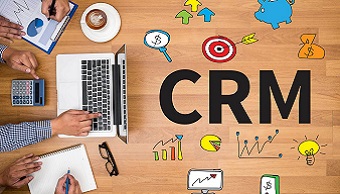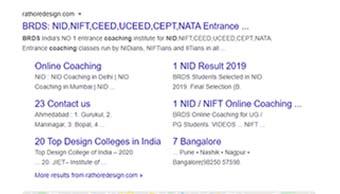Search engine optimization Link Building Service
Search engine optimization Link Building Service
Why Choose Connective9 as Link Building Partner?
Keywords Top 10 Guaranteed.
Increased Backlinks – Counter ( SEMRUSH).
Website Traffic – Guaranteed Increased Organic.
Overall 360’ SEO Growth. overall SEO growth by organic traffic
If you have been serving the online industry for a long time, you will know that you require backlinks to rank high on the search engine result pages. Right? Are you aware of this? It's in no way complicated- content and links are the main determinants of search rankings.
For those who do not have the resources or the time to invest in link building, it might get easier to fall behind their competitors. But not anymore when you have the dedicated team of Connective9 right at your disposal.
While we handle links, you handle the added traffic on your site!
There are reasons why you can always depend on our proven link building solutions.
Customized Link Building Campaign
Chances are you might be having specific objectives for your search engine optimization program, right? Every bit of effort that comes from your end should support these objectives.
When Connective9 is by your side, you can remain assured of having custom-built link building campaigns with committed project management. We do this for ensuring every link that we secure supports the overarching SEO objectives of our clients.
White Label Link Building
Yes, link building consumes a lot of time, but it is one of the most important factors playing a pivotal role in the success of companies' SEO strategy. You require a streamlined and affordable option that fits your customer work seamlessly. Go for our expertise and special link building campaigns to work most effectively for all your customers and help them grow like never before.
Link Building Plans
Our link building campaigns always start with the best of strategies.
1. The first thing that we have a look at is the present condition of the client domain and backlink profile and rankings.
2. Our next step is to analyze the existing linkable assets for determining the things earning links for the client site.
3. Once this is done, we have a close look at the competitors' sites to understand the sites they are getting links from and the different types of content working out well for them.
4. Our final step is making recommendations based on the content types that would best perform for a particular site.
One of the most valid reasons that make us the right destination for availing link building solutions is our use of CRM tools that help in building and managing relations with clients. We provide updates on our entire regular task.
We have a clear idea of the significance of adding a personal touch to services. Therefore, we have dedicated account managers duly appointed for improved communication and coordination.
Our customer support solutions are simply fantastic. Our dedicated team of SEO experts and link building specialists are always there to help our clients.
Our updates are available on a daily, weekly, and monthly basis to help the clients track their sites' progress.
After several years of securing thousands of successful links for clients, we know a lot about link building. And yes, we have even come up with fully customized link building services for our clients.
Connective9, the best digital marketing agency in India offer a 360 degree digital services portfolio. We have carved a niche as a renowned company with our immense experience and skills that help us build a brand brick by brick. We have a focused approach to our job and can easily sense a good digital opportunity and this allow us to help our clients in solving their complex business problems.

We use CRM tools to help build and manage relationships with our clients by providing update on daily task. The tool is simple & easy-to-use.

Don't think SEO can be guaranteed by a reputable company? But we promise you to get website listed on the first page Google

We understand the importance of a personal touch that why we provide a dedicated account manager for better coordination

Our daily, weekly & monthly updates help you to track progress of your website and what is planned for coming months
Outsource Your SEO To Us And Let Our Team Do The Work For You
OK, so this one’s kind of complicated… just kidding. SEO stands for Search Engine Optimization. You engage in SEO when you attempt to get a page to rank higher in a search engine’s SERPs (search engine results pages), with the ultimate goal being to increase organic (unpaid) traffic to that page.
This question is a little like asking: Who’s more important to the Patriots, Bill Belichik or Tom Brady? You can probably come up with an argument for either; but the reality is, both are vital to the team’s success. The same goes for SEO and PPC (pay-per-click). You couldn’t establish domain authority, organic brand affinity, and really, a wholly formed online presence without SEO. By the same token, you couldn’t granularly target prospects by demographic, behaviors, or keywords without PPC.
SEO is just one discipline encompassed by SEM (Search Engine Marketing). SEM includes PPC and SEO. If it’s in the search engine, you can safely assume it’s search engine marketing!
There are a ton of great resources out there if you’re trying to learn SEO. If you’re short on cash, check out blogs like Search Engine Journal, Moz, Search Engine Land, Marketing Land, SEMPost, and the blog of all blogs, WordStream’s. We also put together a great guide on SEO basics. If not, splurge on a book like The Art of Seo, or on classes by Udemy or Lynda.
Again, you could come up with a good argument for a few different answers here. Ahrefs is great for competitor content and backlink research; Moz Pro’s content explorer is great for finding unlinked mentions; and SEMrush is great for rank and visibility tracking. The three share many overlapping features. It’s more a matter of preference than anything. Spyfu, AWR Cloud, and DeepCrawl are also worth checking out.
On-page SEO refers to tactics utilized on or within a page to assist it in ranking higher in the search engine. On-page SEO includes both content and the HTML source code of a page (image optimization, keyword optimization, Schema markup, and more), but not external links and other external signals.
As fun as it is to say, no: SEO is not dead. SEO is still a vital part of online marketing; and unless the way we search for content changes drastically, it will be for a long time. Businesses looking for immediate leads and conversions may neglect SEO in favor of more direct, targeted approaches like paid search and paid social; but businesses that invest in SEO are investing in the long term. SEO is cost-efficient, casts a wide net, and allows potential prospects to discover your brand on their own terms. Go ahead and enter the query “is seo dead” into Google. The post you ultimately click on is only in a position to be clicked because—you guessed it—effective SEO.
Say it with us: Plan for voice search! ComScore predicts that by 2020, 50% of all searches will be voice searches. Take a look at the number of articles published in the past year about “how to optimize for featured snippets”: Up 178% from 2016. People have figured out that systems like Amazon Echo, Google Home and Google Assistant pull from featured snippets to give their answers. Look for SEOs to continue to turn their attention to voice search—this year, and into the future.
As we discussed earlier, SEO is always changing. But the biggest change continues to be the shift toward mobile. Mobile digital media time in the US is now significantly higher (51%) than desktop digital media time (42%), and that number is set to continue to grow. Google recently made mobile page speed a ranking factor. Going forward, if you haven’t already done so, you should look into Accelerated Mobile Pages. It’s becoming more and more paramount to make sure you have no mobile usability issues on your site.
What have you done thus far? If the answer is nothing, you’re going to want to use one of the SEO tools I mentioned above to run a site audit. This will allow you to find and rectify any broken links, make sure all your meta tags are in order, and check page load speeds. Search Console also has a great “Crawl Errors” tool, in addition to other tools that help you diagnose your site’s speed and usability. Once your current pages are in order, get cracking on keyword research, and start putting out some content!
Great question! Keyword research helps you determine the keywords for which you should optimize the current and future pages of your site. For example: if your new small business sells employee scheduling software, but you discover that “employee scheduling tool” has higher search volume and lower competition than “employee scheduling software,” you might want to change the copy on your website to reflect that. Keyword research is a way of determining which queries people are entering into search engines so you can publish pages that will show up as results for those queries.
Most of the SEO tools we’ve mentioned in this article have some form of keyword explorer. There’s also Google’s Keyword Planner; and, for SEO’s elite, WordStream’s Free Keyword Tool. Once you settle on a tool, ask yourself some questions: What are some parent topics related to my business; related to a product I’m selling; related to a blog post I want to write about? Starting with broad parent topics allows you to generate large lists of potential keywords, then narrow them down by preference. Perhaps you’ve noticed that keywords with certain volumes generate the most traffic to your site, so you filter the rest out. Perhaps you’re looking for uber-low-competition keywords for which you can easily rank. Establishing parent topics allows you to start large, then get gradually more granular.
You’ve probably heard keyword stuffing is bad, and yes—you don’t want to throw in keywords unnaturally. But in general, the keyword your optimizing a page for should appear in the title, in the first paragraph of your intro, in an H2, if you can manage it (ideally in the form of a question!), and sporadically throughout the rest of your post. For reference, “SEO Keywords” is the H2 of this section, while the questions themselves are H3s.
Yes! Each piece of new content you create is another opportunity to rank for a target keyword related to your business. The more high-quality blogs you create, the wider the net you cast across your industry’s organic search results.
Yes! If you’re not familiar with HTTPS, it is essentially a more secure form of HTTP. Look up at the URL of this page. See the “https” at the beginning, and the word “Secure” to the left of it? Google looks on pages like these favorably. Not only does it index HTTPS pages first, but it also recognizes HTTPS as a ranking signal. HTTPS is also faster than HTTP, which can affect click-through rate. So yes, changing to HTTPS should positively impact your rankings!
Yes! But not all of them. There are four kinds of meta tags:
Robots.txt is a text file within your website’s top-level directory that instructs search engines how to crawl your pages.
Yes! Sorting your pages into categories can help prevent individual pages from competing with one another.
Categories, tags, and breadcrumbs all help dictate the taxonomy and structure of your site to search engines. They help users and search engines alike determine how to get from one page to another within your site. They also reinforce the authority of the parent categories of each topic.
Where to begin? Link building. Keyword research. Site audits. On-page SEO. Updating pages for relevancy. All are important. By the end of this article, if we did our job, you’ll understand all of them!
Think about it this way: the internet is made up of two things—content, and links between content. When search engines first started indexing web pages, they needed a way to determine which pages were most relevant to certain queries—a system of ranking. The quality and number of backlinks pointing to a page immediately became a factor in determining that page’s rank. Backlinks represent a vote of confidence from one site to another. The more quality backlinks your page earns, the more valuable it is in the eyes of the search engine, and the more likely it is to achieve a high ranking.
A follow link carries link equity. A nofollow link carries no link equity.
Formally referred to as “link juice,” link equity is the amount of clout a link transfers from one page to another. Before nofollow links, all links carried link equity, and spam (posting links across the web not for the sake of being informative, but for the sake of acquiring referral traffic) was a surefire way to get your pages to rank higher. It was common to see several sites owned by the same person on the first page of the SERP, and to see blog comments flooded with links to irrelevant content. Today, you can still click through from one page to another using nofollow links; but search engines don’t follow them when they crawl the web, so no link equity is passed.
The amount of link equity a link carries is determined by several factors. Links from relevant content, from authoritative sites, and from body paragraphs have more equity than links from irrelevant content, non-authoritative sites, and page headers and footers.
A website’s domain authority corresponds directly to its ability to rank in the search engine. Conceptually, you can think of domain authority as an extension of link equity. If a page’s link equity is determined by the number and quality of its links, then a site’s domain authority is determined by the link equity of all its pages.
Link building is an SEO strategy by which an SEO acquires links to boost a page’s link equity; and therefore its ranking; and therefore its traffic. Both internal and external link building can help boost page authority, but one is decidedly harder than the other!
Internal links are links that come from within the same domain. External links are links that don’t come from within the same domain.
Internal link building is a means of piggybacking on one’s own link equity. You build internal links by linking from pages on your own site. For example: this page’s authority is bolstered by links from other SEO-related pages that live within www.wordstream.com. If you have a large website, you can use a site search to find related content, like so: "site:wordstream.com search term." Look to link from pages that are already authoritative and high-ranking pages; but be wary that linking too much from these pages can have an adverse effect on their link equity. Once you identify a page, you’ll want to find some anchor text that closely matches your target keyword. Then link away! External link building is the process of soliciting links to your content from other websites. Who would want to link to your website? Why, people in related industries who could use your informative resources! There are a variety of methods when it comes to building external links, but the general roadmap looks like this: find pages that could use your resource; find the contact information of the authors/webmasters of said pages; kindly invite said authors/webmasters to link to your new and valuable resource.
It’s the clickable text in a hyperlink. This is exact match anchor text. It’s anchor text that exactly matches the target keyword of the page to which it links. Anchor text informs the crawling search engine about the topic of the linked-to page. Exact match anchor text is more valuable than non-exact-match anchor text, but too many exact match links can appear spammy and can negatively impact a page. Moral of the story: a little bit of variety is good!
Broken link building is the process of seeking out links to pages that no either no longer exist or have been moved and replacing them with your own pages. There are many ways to find broken links. Most SEO tools allow you to check the backlink profiles of competitors and see which of their links are broken. If you find a heavily linked-to resource that has either switched URLs or no longer exists, and that’s similar to a resource you already offer or are willing to create, then you’re in luck! Dig up the page owner’s contact information, and offer your resource as a replacement.
Redirects are a natural part of linking between content on your site. That said, 301 redirects pass anywhere between 90-99% of link equity (read: ranking power) to the redirected page. So, if you’ve moved a piece of content between several different pages, and all those redirects are still in place, you might be sacrificing some load speed/link equity. It’s a good idea to eliminate those superfluous intermediaries. Still, not all redirects are created equal. 301 redirects, in which a page is moved permanently, are the most SEO-friendly redirects. They pass between 90-99% of link equity. 302 redirects, which indicate a temporarily redirected page, pass less link equity (though some Google employees have disputed this). Meta refreshes are redirects that take place on the page level, rather than the server level. These are most commonly associated with the text, “If you are not redirected in five seconds, click here.” Meta refreshes pass some link equity, but are not a recommended SEO tactic.
Copyright © 2021 Connective9. all rights reserved.